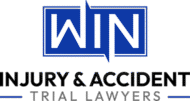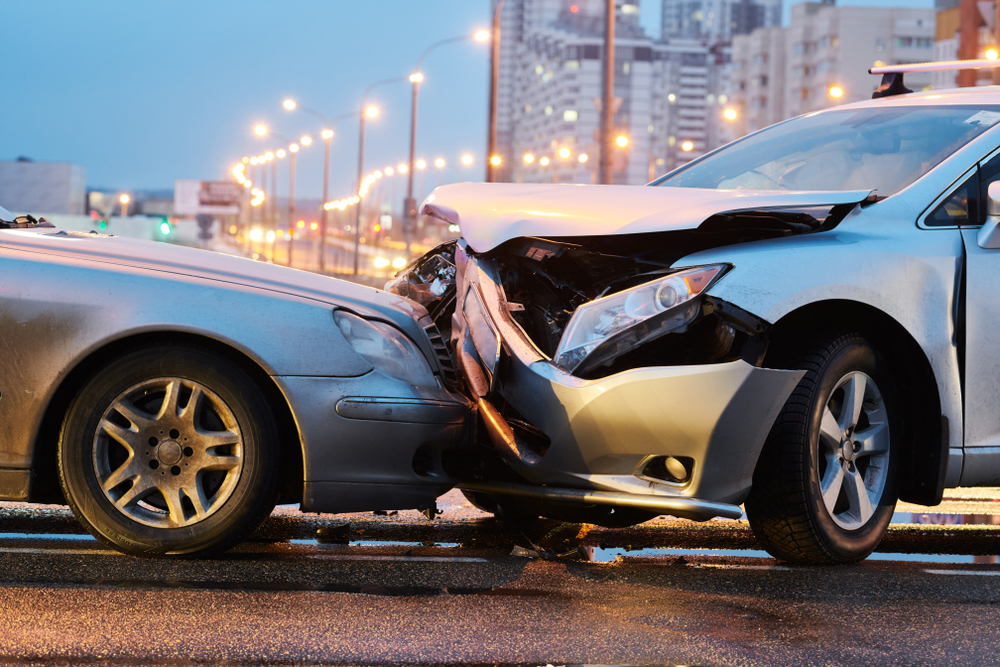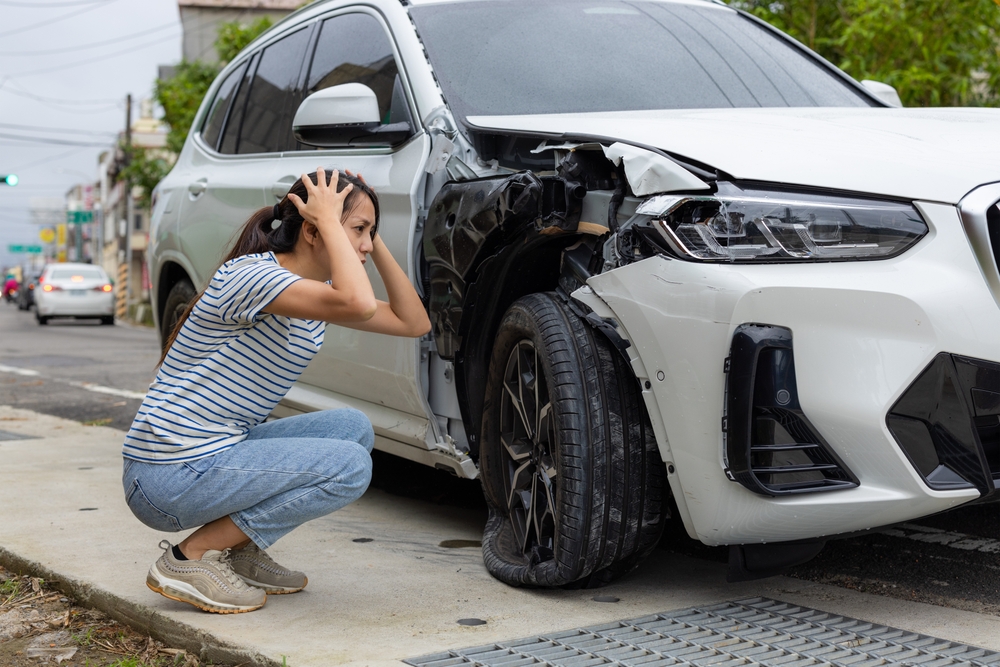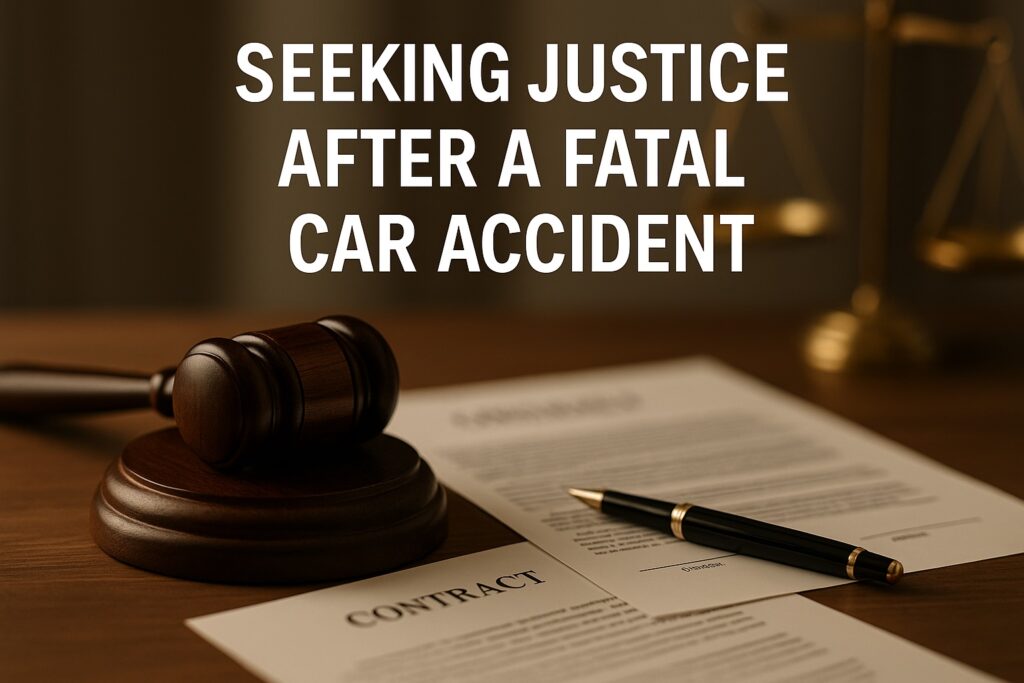
When a tragic crash takes a life, legal recourse matters more than ever
Losing a loved one in a car accident is devastating. Beyond the emotional trauma, families face steep financial burdens, unanswered questions, and the difficult decision of whether to pursue justice. In California, wrongful death laws provide a pathway for surviving family members to seek compensation when a death is caused by someone else’s negligence or wrongdoing. But wrongful death claims are complex — the rules, deadlines, and types of damages allowed differ from ordinary injury cases.
At WIN Trial Lawyers, we help grieving families navigate this process. In this post, we explain how wrongful death claims work in California car accidents: who can file, what you can recover, what you must prove, and why acting quickly is essential.
What Is a Wrongful Death Claim?
A wrongful death claim is a civil lawsuit brought by survivors (through an estate or personal representative) when someone dies because of another party’s negligent, reckless, or intentionally harmful conduct.
In car accident contexts, wrongful death claims arise when a driver, pedestrian, or vehicle defect causes fatal injuries. A criminal prosecution (e.g. DUI, vehicular manslaughter) may also occur, but a wrongful death lawsuit is separate and is about financial compensation for the survivors.
Wrongful death cases in California are governed primarily by California Code of Civil Procedure § 377.60 and related statutes.
Who Can File a Wrongful Death Lawsuit in California?
Not just anyone can bring a wrongful death claim. California law restricts who has standing (legal right) to pursue such a case.
Under CCP § 377.60, the following are eligible:
- The decedent’s surviving spouse or domestic partner
- The decedent’s children or descendants of deceased children
- If none of the above exist, individuals who would be entitled to the decedent’s estate under intestate succession (for example, parents, siblings)
- In addition, a personal representative of the decedent’s estate can file on behalf of the survivors.
It is not sufficient for a single heir to file without joining others: the law demands proper representation of all who may have claims.
Also, only those who were financially dependent on the decedent (or who suffered measurable losses) may be entitled to certain damages.
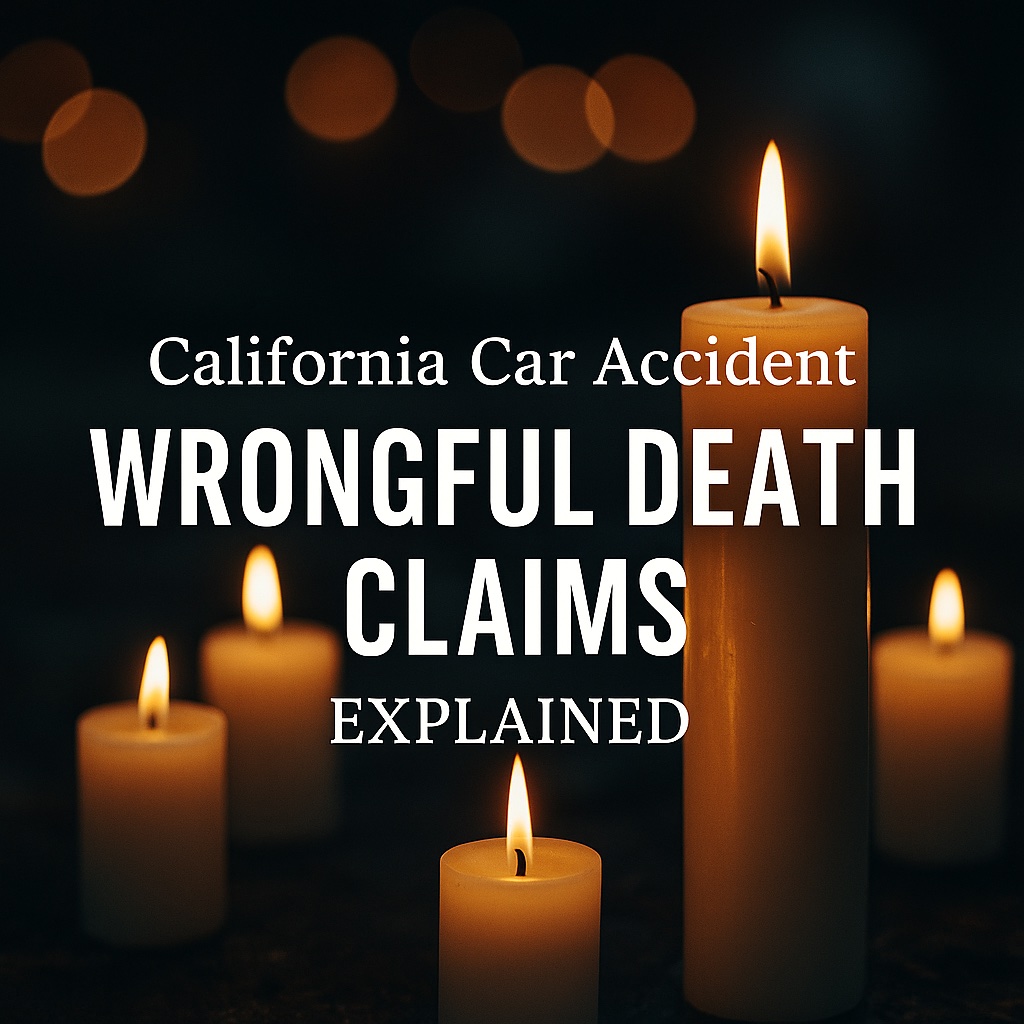
What Must You Prove in a Wrongful Death Case?
To succeed in a wrongful death claim, you (your attorney) must establish the standard elements of negligence (or another applicable legal theory) and satisfy special rules of wrongful death law.
Typical elements include:
- Duty of Care — The defendant owed the decedent a legal obligation (for example, a driver must obey traffic laws and operate safely).
- Breach of Duty — The defendant failed to act with the required care (e.g. speeding, distracted driving, DUI).
- Causation — The defendant’s breach was a substantial factor in causing the decedent’s death (both factual cause and legal/proximate cause).
- Damages — The survivors suffered quantifiable losses as a result of the death.
Because a decedent cannot testify, evidence must come from documents, witnesses, expert testimony, accident reconstruction, medical records, and other sources. Having skilled legal counsel is essential to assemble evidence, challenge defenses, and counter insurance company strategies.
What Damages Are Recoverable?
Damages in wrongful death cases fall into two main buckets: economic and non-economic (and in rare cases punitive). California law defines which kinds of losses survivors can claim.
Economic Damages
These are losses with a dollar value you can document. Examples include:
- Lost future income or financial support the decedent would have provided
- Value of household services the decedent would have rendered (e.g. childcare, maintenance)
- Medical and funeral/burial expenses
- Losses suffered by dependents (e.g. loss of inheritance)
- The estate’s claim for the decedent’s pre-death medical costs
Because future losses must often be discounted to present value, actuaries or economists are frequently involved.
Non-Economic Damages
These compensate for intangible harms, such as:
- Loss of love, companionship, comfort, guidance, and moral support
- Loss of consortium (the spouse’s loss of intimacy, affection)
- Emotional pain and suffering experienced by survivors as a result of the death
Unlike many other states, California does not impose a general cap on damages in wrongful death claims (unless the wrongful death arises out of medical malpractice, in which non-economic damages may be capped).
In medical malpractice cases resulting in death, there is a limited ceiling on non-economic damages for wrongful death, which changes over time.
Punitive (Exemplary) Damages
Punitive damages are rare and awarded only if you show the defendant acted with malice, oppression, or fraud. They are meant to punish extreme misconduct beyond mere negligence.
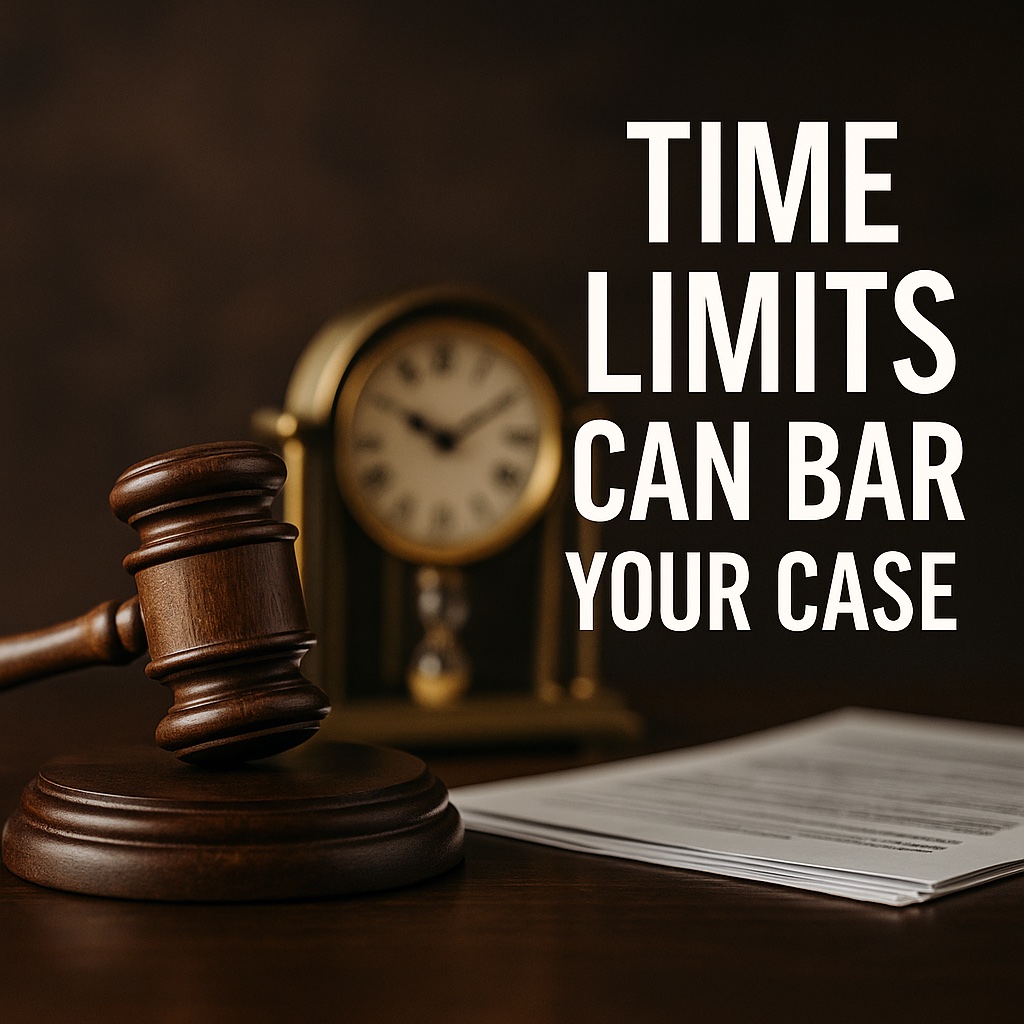
Statute of Limitations & Deadlines
One of the most critical parts of a wrongful death claim is timing. If you miss the legal deadline, your case can be barred entirely.
- In most California car accident wrongful death cases, you have two years from the date of the decedent’s death to file a lawsuit.
- Be aware: the date of death may differ from the date of accident (e.g. if the decedent survived for some time after the initial crash).
- In wrongful death cases arising from medical malpractice, the deadline is more complicated: one year from discovery (or three years from death), whichever is sooner.
- If the defendant is a government entity or public employee, you often must file a claim within six months (a shorter period) before filing a lawsuit.
- For minors who bring wrongful death claims for the death of a parent, special rules may allow extension until two years after they turn 18.
Because of these complexities, early consultation with counsel is crucial.
Steps to Take After a Fatal Car Accident
While your priority is healing and mourning, there are legally important steps to preserve your rights:
- Call law enforcement and request a full accident investigation. The police report can be vital evidence later.
- Preserve evidence — photos, vehicle damage, skid marks, surveillance footage, witness contact info.
- Obtain medical and autopsy records to establish cause of death and link it to the accident.
- Notify insurers — often the decedent’s own auto policy, wrongful death benefit policies, life insurance, etc.
- Do not give recorded statements or sign settlement releases before talking to an attorney.
- Engage a wrongful death attorney immediately — we can preserve evidence, handle communications, and start the claim process before deadlines expire.
Common Challenges & Defenses in Wrongful Death Cases
Because wrongful death claims involve high stakes, defendants and insurers often mount aggressive defenses:
- Comparative fault / contributory negligence — they may argue the deceased was partially responsible (e.g., speeding, not wearing seatbelt).
- Causation contest — linking the accident to the fatal injury may be disputed.
- Disputed valuation of damages — insurers may undervalue loss of future earnings, household services, or emotional harm.
- Statute of limitations defenses — they may argue timing is improper or that the claim was filed too late.
- Government immunity or special procedures — if a public entity is involved, special notice rules may apply.
- Policy limits and multiple insurers — multiple liability layers might exist; navigating them is complex.
Your attorney’s role is to anticipate these defenses, gather robust evidence (experts, reconstruction, medical testimony), and negotiate forcefully or litigate when necessary.
What Settlement Amounts Look Like in California
There is no “typical” wrongful death settlement because outcomes depend heavily on factors such as:
- The decedent’s age, health, earning capacity
- The strength of liability evidence
- The size of insurance policies or assets of defendants
- The number and relationship of survivors
- Emotional impact on surviving family members
Some published figures show a wide range — from hundreds of thousands to multi-million dollar recoveries.
Given the uncertainty, a skilled attorney is essential to assess the likely range, negotiate with insurers, and prepare for trial if necessary.
Why Legal Representation Matters (The WIN Advantage)
- Timing & Procedure Expertise — We know the deadlines, how to file claims & notices, and legal traps to avoid.
- Evidence Collection — We secure crash reports, reconstruct the collision, subpoena medical records, and consult experts in biomechanics, economics, and medicine.
- Valuation & Strategy — We assess both economic and non-economic damages, foresee insurer tactics, and structure demands for maximum leverage.
- Negotiation & Litigation — We negotiate with insurance companies from a place of strength. If needed, we take the case to trial to force full accountability.
- Client Support — We handle the legal burden so grieving families can focus on healing, not paperwork.
At WIN Trial Lawyers, we believe that the value of justice for a life lost is far more than what insurers often offer. We fight to obtain the full compensation your family deserves — not just a quick lowball settlement.
Conclusion & Next Steps
If you lost a loved one in a car accident caused by another’s negligence, you deserve more than just condolences — you deserve justice and financial recovery. But wrongful death claims in California are legally complex and bound by tight deadlines.
You should:
- Seek legal help immediately
- Preserve all available evidence
- Avoid dealing unilaterally with insurers
- Act before the statute of limitations expires
If you or your family has been affected by a fatal car accident, call WIN Trial Lawyers now. We offer free consultations, will review your situation, and help you move forward with strength, clarity, and advocacy.
Protect Your Rights with WIN Trial Lawyers
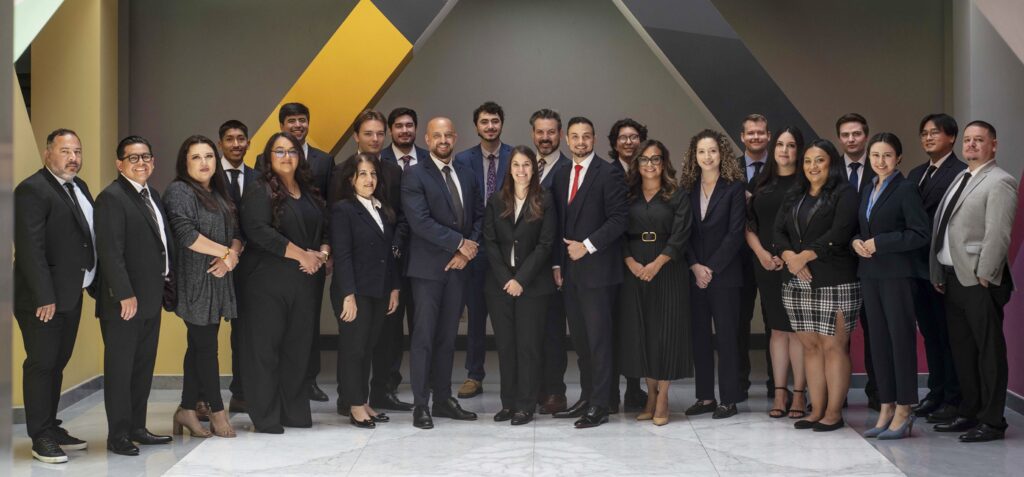
At WIN Trial Lawyers, we know how devastating distracted driving accidents can be. Victims often face mounting medical bills, lost wages, and emotional trauma. Our team has successfully taken on insurance companies and distracted drivers, recovering millions for injured clients.
If you or a loved one has been injured in a speeding-related car accident, don’t leave your future in the hands of the insurance company. You need experienced trial lawyers who know how to prove liability and fight for maximum compensation.
If you or a loved one has been injured in a distracted driving accident, don’t face this alone. The sooner you act, the stronger your case will be.
